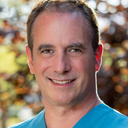Posted underBreast Lift q&a
Answers (6)
From board-certified doctors and trusted medical professionals
Dr. Jeffrey J. Roth, MD, FACS

JF
Dr. Jeffrey J. Roth, MD, FACS
Board Certified Plastic Surgeon
Answer
Dr. James Knoetgen, III, MD
JM
Dr. James Knoetgen, III, MD
Board Certified Plastic Surgeon
Answer
Dr. Lewis Ladocsi, MD, FACS
LF
Dr. Lewis Ladocsi, MD, FACS
Board Certified Plastic Surgeon
Answer
Dr. Curtis Wong, MD
CM
Dr. Curtis Wong, MD
Board Certified Plastic Surgeon
Answer
Dr. Jeffrey Zwiren, MD
JM
Dr. Jeffrey Zwiren, MD
Board Certified Plastic Surgeon
Answer
Dr. Robert E. Zaworski, MD (retired)
R(
Dr. Robert E. Zaworski, MD (retired)
Board Certified Plastic Surgeon
Answer
More Breast Lift Questions
See all Breast Lift Q&A
WE SEND PRETTY
EMAILS
What’s trending? Who’s turning heads? Which TikTok myths need busting? We’ve got you. No fluff, no gatekeeping—just real talk. Get our free, unfiltered newsletter.




